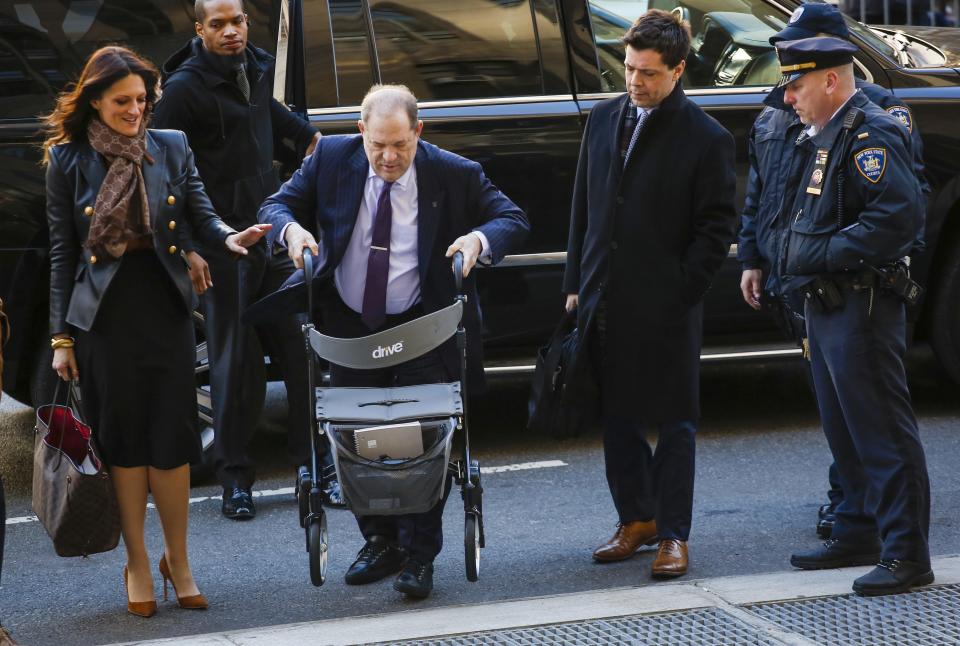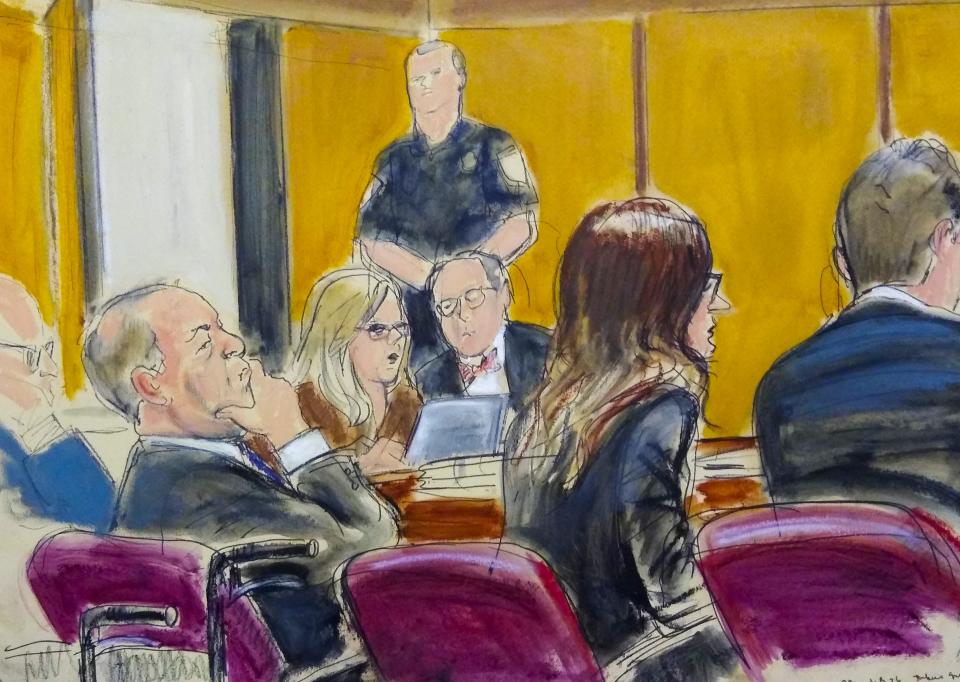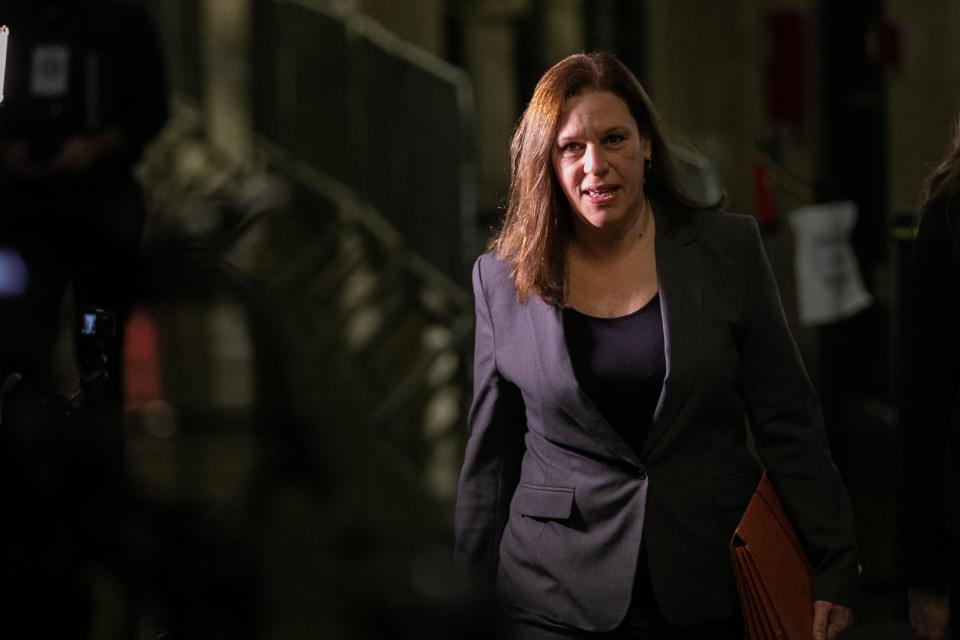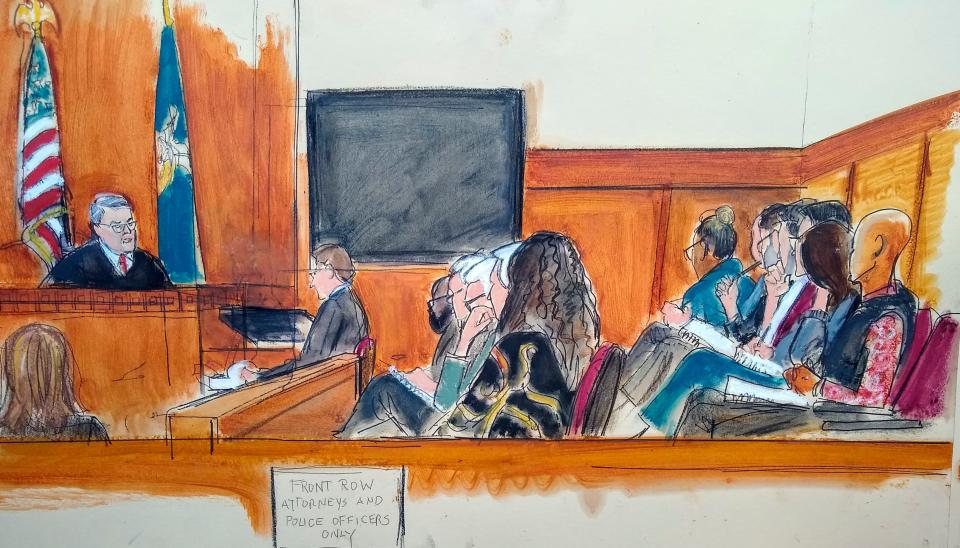Harvey Weinstein jury concludes third day of deliberations without a verdict
NEW YORK – The jury in the Harvey Weinstein sex crimes trial continued deliberations for a hushed third day Thursday, with journalists and lawyers in the courtroom left wondering how close they are to reaching a verdict.
On Tuesday and Wednesday, jurors asked the judge for read-backs of testimony, copies of evidence, and legal definitions of terms such as rape and oral sex.
But the jury made no such requests for the majority of Thursday, and the courtroom remained mostly silent throughout their roughly six-hour deliberation. Around 4:30 p.m. ET, they sent a note asking to be read "cross-examination and everything afterwards" related to accuser Annabella Sciorra. They requested a list of people that Sciorra spoke to about Sciorra’s allegation that he raped her in her New York apartment in the winter of 1993-94.
The jurors were dismissed late Thursday afternoon and will resume deliberation Friday morning.
On Wednesday, Judge James Burke brought the seven men and five women of the jury back into court after they began the day with questions and a request to read the transcript of the direct and cross-examination of accuser Miriam "Mimi" Haleyi, plus emails exchanged between her and Weinstein. Haleyi said Weinstein forced oral sex on her in a hotel room in the summer of 2006.

He then read count 1 (predatory sexual assault involving Haleyi and "Sopranos" actress Annabella Sciorra) and count 2 (criminal sexual act in the first degree involving Haleyi) from the jury's verdict sheet and reexplained the legal definitions of rape and oral sex.
After lunch Wednesday, they sought a read-back of the testimony of actress Rosie Perez, who was called to corroborate Sciorra's testimony. They asked for copies of emails and texts from Paul Feldsher, a producer who testified for the defense.
They asked for copies of any emails or texts mentioning Sciorra, especially those referring to Black Cube, a private intelligence agency of ex-Israeli Mossad operatives that Weinstein hired to investigate his accusers and journalists.
And they asked for copies of a PowerPoint presentation by forensic psychiatrist Barbara Ziv, an expert for the prosecution who tried to dispel common "rape myths," testifying that it’s "normal" for sexual assault victims to maintain friendly contact with their assailants.
Are the jurors deciding the ex-movie mogul's fate in a state of confusion? Or are they simply taking care to clarify their instructions and the law while deciding the outcome of a high-profile criminal case?
"They're laymen, not lawyers, and the first time they heard their instructions was at the trial, and they were read quickly," said Adam Citron, a former New York prosecutor who is a defense attorney not involved in the case. "The lawyers understand, but maybe the jurors want to make sure they understood."
Early in Tuesday’s deliberations, jurors sent a note asking why Weinstein wasn't charged with crimes stemming from Sciorra’s allegation.
"You must not speculate as to any other charges that are not before you," Burke said.
The short answer is that Sciorra's allegation is too old to prosecute under the statute of limitations.

The more complicated answer is that her testimony was introduced by Manhattan prosecutors to support their assertion that Weinstein is a serial "predator," which required them to demonstrate he assaulted more than one woman even if he wasn't charged.
That, in turn, would allow a stiffer sentence if he is convicted, making the predatory counts the toughest of the charges against Weinstein.
"It's hard for laymen to understand that even when the statute of limitations has run, a defendant can still be charged for that same (alleged crime) if it's committed on another person at a later point in time when the statute has not run," Citron said.
Sciorra's allegations are a key aspect of the Weinstein case, said Heidi Reavis, an attorney with Reavis Page Jump, a New York law firm that deals with allegations of sexual assault and harassment in the workplace.
"That alone would be challenging for a jury to understand – how allegations of serious sexual assault from years ago that weren’t prosecuted then and cannot be prosecuted now, would have such relevance to charges of predatory sexual assault 27 years later,” Reavis said.
The verdict sheet the jury took into their deliberations is complicated: If the jurors find Weinstein guilty of count 1, they are to skip count 2 and go directly to count 3, which is predatory sexual assault of Sciorra and Jessica Mann, who said Weinstein raped her in a New York hotel in 2013.
If the jurors find Weinstein is guilty of count 3, they are not to consider counts 4 and 5, which are first-degree rape involving Mann and third-degree rape involving Mann.
Citron said the jury could find Weinstein not guilty of the predatory counts but guilty of sexual assault and rape of Haleyi and Mann (counts 2, 4 and 5), but his sentence would not be as severe.

Tuesday afternoon, the jurors wanted legal definitions of consent and "forcible compulsion," which Burke explained during his jury instructions Tuesday morning.
"Concepts like criminal culpability, consent, forcible compulsion and how lesser-included crimes operate together are complex legal issues that we might spend several hours teaching law students about," says Cheryl Bader, a clinical professor of law
at Fordham University's law school in New York.
The jurors sought to see an email Weinstein sent to a private agency in 2017, listing accusers he feared would come forward as “red flags,” and they asked to see a floor plan of Weinstein's Soho apartment where one of the six accusers who testified against him in the trial said she was assaulted.
The fact the jury asked Wednesday to have a read-back of all of Haleyi's testimony could be significant because this case lacks any forensic or physical evidence; it comes down to whether jurors believe the accusers or have "reasonable" doubts.

Reavis gave the jury credit for being careful to consider all the available evidence and anchor its judgment in facts. But jurors may want to know where are the forensics, the video or the rape kit – none of which was relevant in the Weinstein case.
"We live in a world of forensic data where even the most casual conversation leaves a forensic trail," Reavis said, "whereas sexual assaults are usually private and intimate by definition. Will the jury discount testimony that is not directly supported by forensic proof? Will this come down – once again – to 'he said' over 'she said'?"
Citron said the Weinstein case, judging from the jury's questions and requests, may come down to each juror's personal views of what constitutes rape.
"Fifty years ago, we thought of rape as physical violence by a stranger, and it’s expanded now to include social and economic pressure by someone you know, to manipulate consent or lack thereof," Citron said. "A lot of this will come down to what the jury truly believes rape is and should be in a time when definitions are morphing."
This article originally appeared on USA TODAY: Harvey Weinstein jury silent on day 3: Are they confused, careful?
